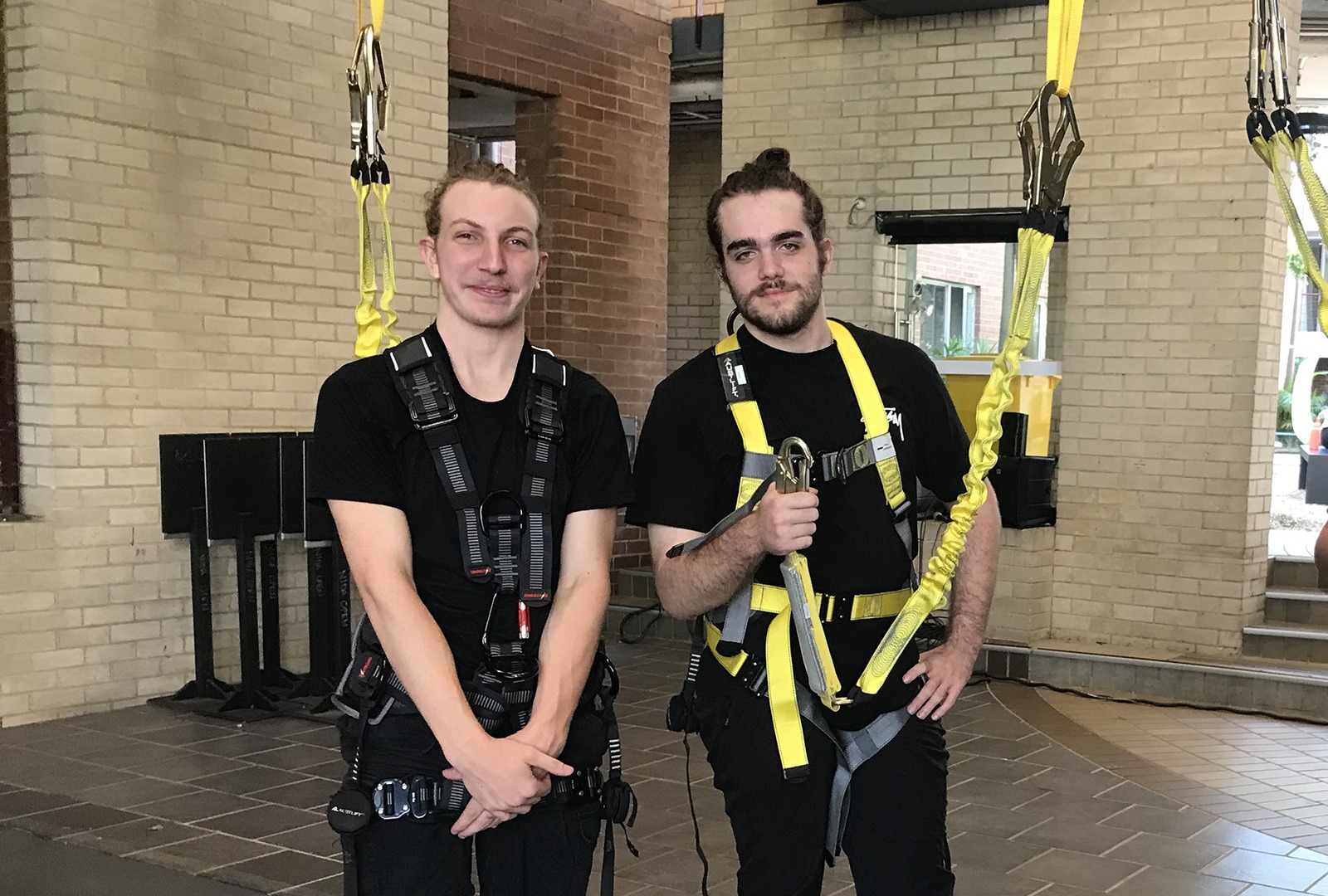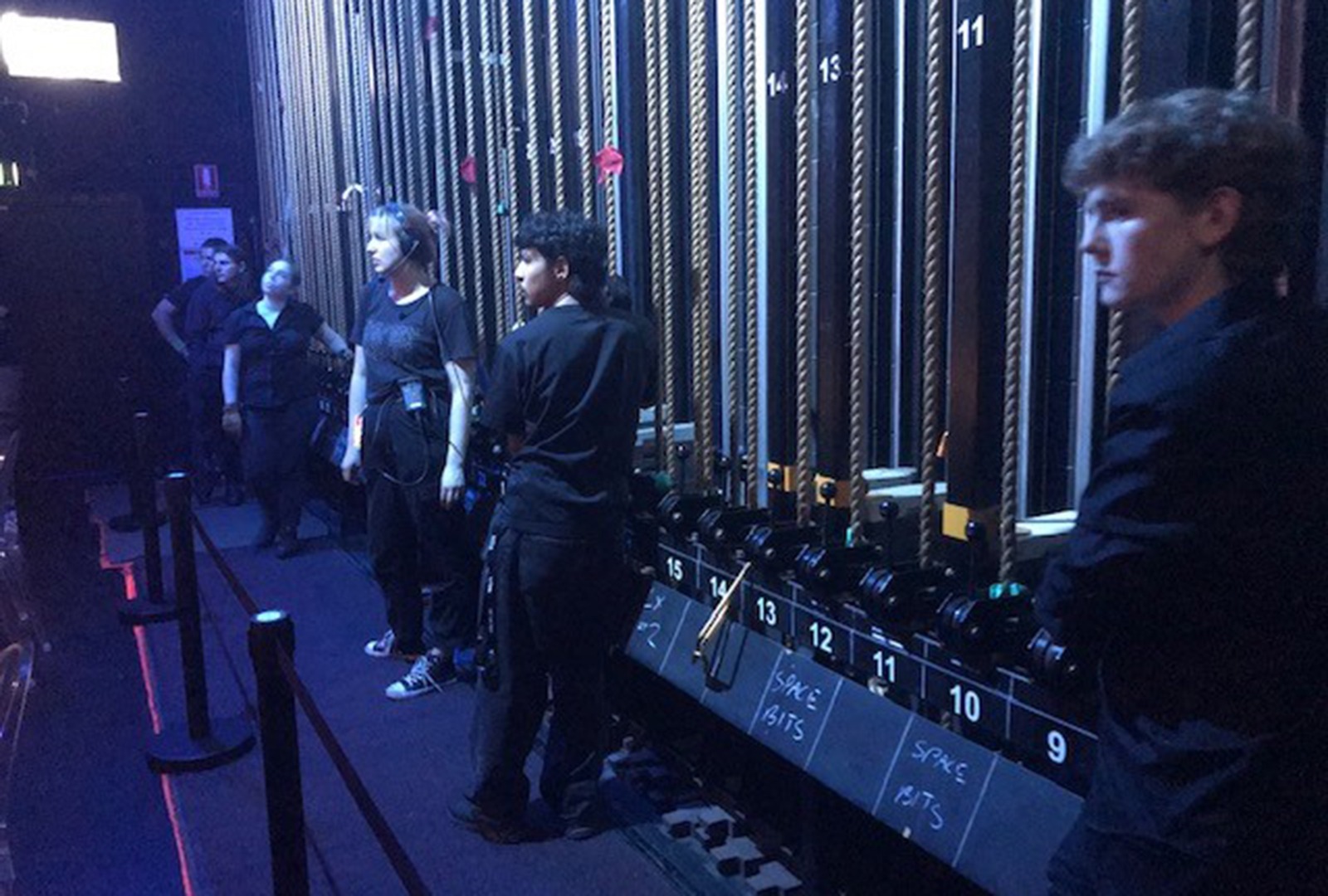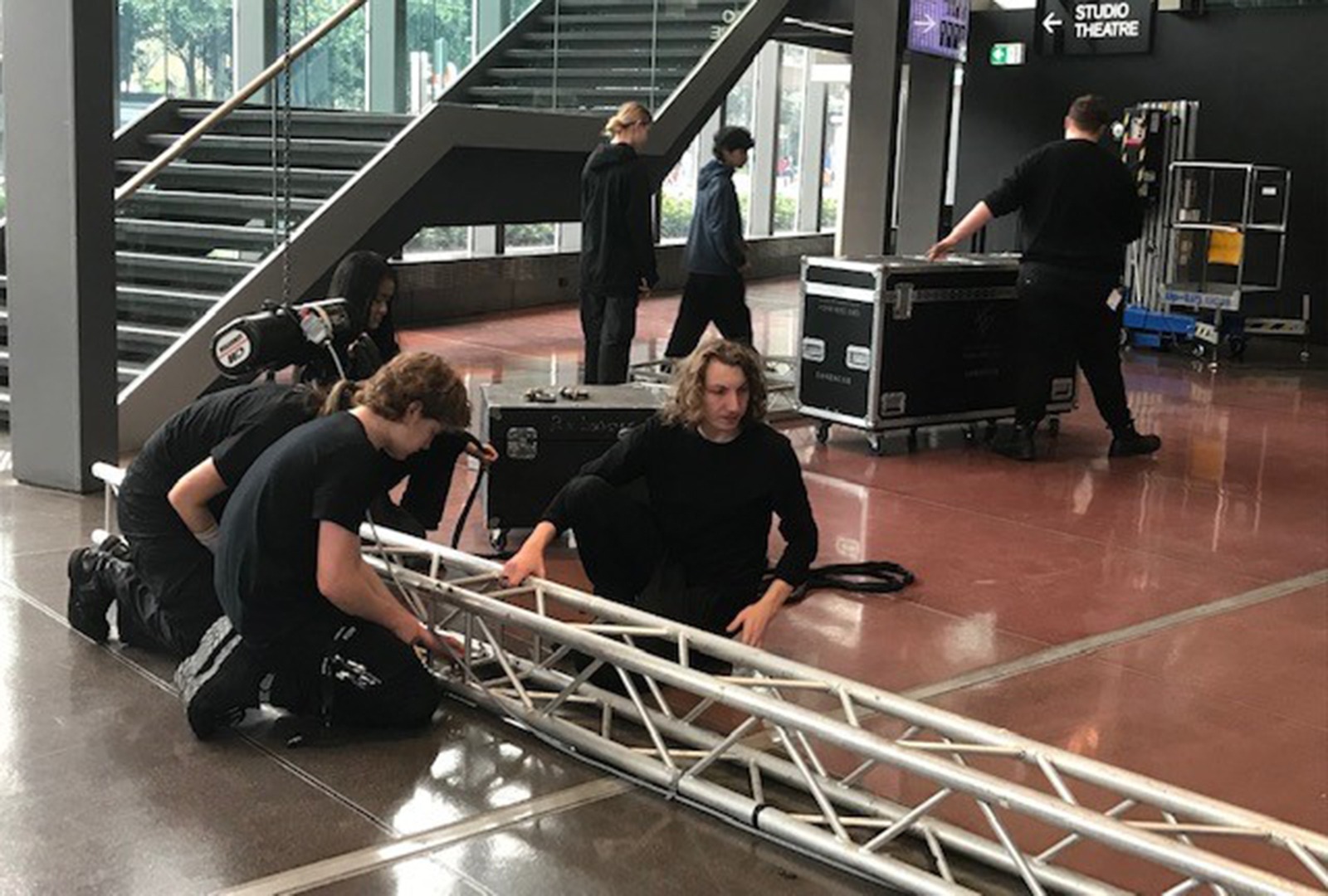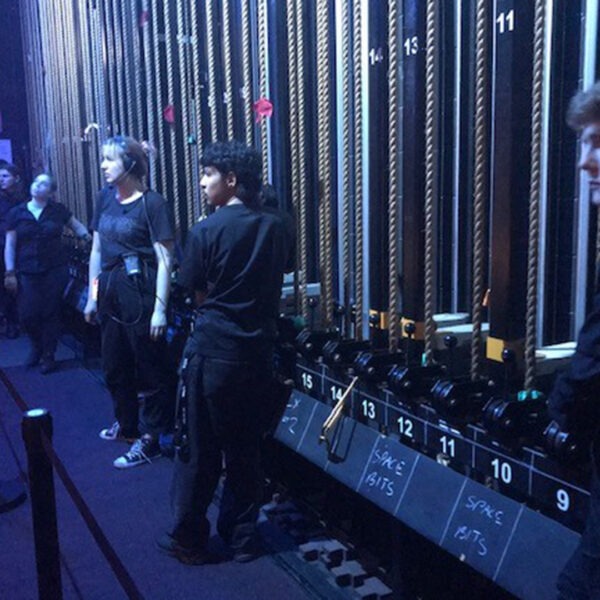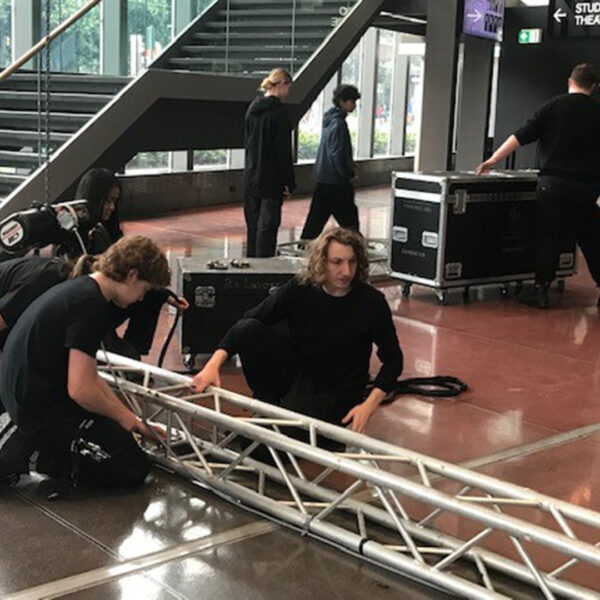The Diploma of Live Production and Technical Services (DLPTS) CUA50420 not only has a long name, but it also has a long list of skills that students acquire and graduate with – in under a year. As this year’s DLPTS cohort emerge into the industry, we caught up with two graduating students to gain insights into their time in the course, what drew them to technical theatre, and why NIDA was the place for them to take their passion to the next level.
Luke Ryan, a graduating student of DLPTS 2024, already had substantial experience coming into NIDA, completing technical theatre work with community groups as well as casual shifts with his local professional theatre. Luke reflected that this ‘…was a great lead into my NIDA education, however, it is not absolutely critical as the course does teach you the fundamentals of technical theatre before allowing you to put those skills into practice.’
Chuanie Luu, another 2024 graduand, knew from a young age that she wanted to pursue live production as a career. Completing a Certificate III in Live Production and Technical Services as part of her HSC, this ultimately solidified her passion and love for working in technical theatre. She shared that, ‘one of the best parts of this course, and having the opportunity to work in such diverse roles, is the joy of seeing a show transform… You learn to convert an empty space into a venue where people can then produce quality productions.’ Similarly, Luke says the joy is in ‘creating the atmospheric illusion that makes theatre magical.’
The DLPTS course, which runs for 32 weeks over a 9-month period, equips students to go out into the industry with in-demand skills for the essential behind-the-scenes work of live performance. This includes lighting, audio and vision designing, operating, mixing and programming.
What made you to apply for NIDA?
Chuanie: Well, the obvious answer is because it’s NIDA! Ever since I realised that technical theatre is what I want to pursue as a career, I only had my eyes set on NIDA. I mean, look around in this industry where people have trained. The industry is full of NIDA alumni, and it was always a dream of mine to become part of that. Being one of, if not the best dramatic arts universities in Australia, NIDA has the resources and connections you need to not only get started but achieve your end goal in this industry. Looking back, applying to NIDA was one of the best decisions I have made, and I will forever be grateful for my experience at NIDA.
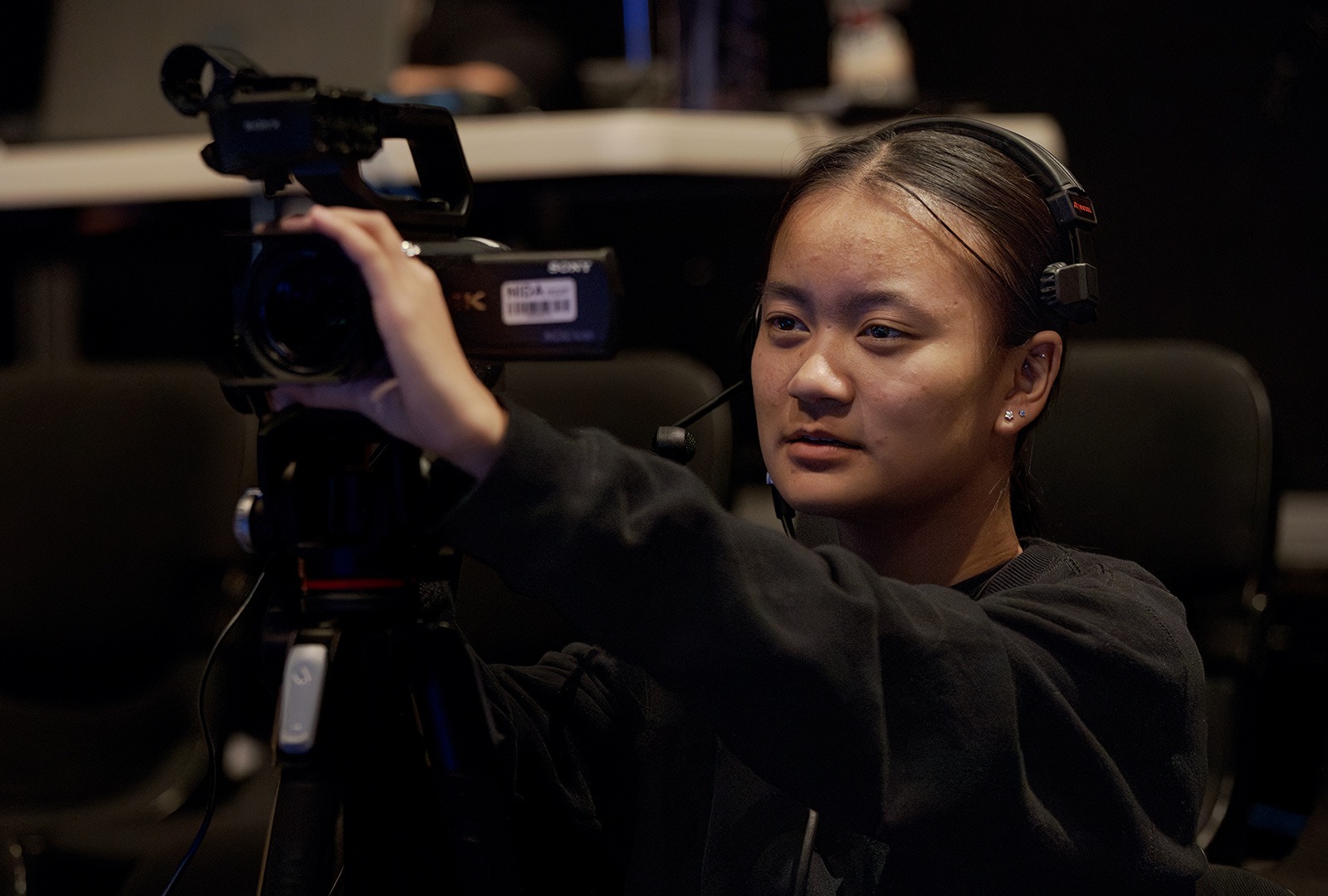
What surprised you the most during your time at NIDA?
Luke: The rapid acceleration as the course progressed through the year. There is a rapid increase of practical tasks during the course, as the course progresses you are given multiple opportunities to demonstrate your abilities through a wide variety of different events and are put in different technical departments to experience what each does for an event and their unique challenges.
Chuanie: It was the NIDA community. Completing any course at NIDA is not easy. You are there for a minimum of 40 hours a week, and with that comes a lot of work, but in saying that, it is one of the most rewarding experiences I have ever been through. The community at NIDA is nothing short of one of the most supportive groups of people you can have the privilege of working with. From classmates, fellow students, to tutors, to staff, there is always someone to go to no matter the issue. The community NIDA fosters is something special – everyone is just so lovely and kind to each other.
What challenged you the most during your time at NIDA?
Luke: The Final 5 weeks of the course at peak intensity as we jumped from production to production. It greatly challenged you to be organised whilst maintaining a level of professional quality.
What are three highlights from your time in the course?
Luke:
- The teamwork aspect of the course. Managing projects with classmates encouraged an exciting and engaging comradery as you try to shape and develop the production you work on together.
- The variety of skills you learn. Regardless of your previous experience, throughout the year you learn fundamental skills in each of the core departments that make up a technical team. Lighting, Audio, Vision and Staging. These skills provide insight into the challenges that each department experience giving you a greater appreciation of what is required to do each job well. It also allows you to try thing you might not have had the opportunity to do in the past which may then become your preference going forward into the industry.
- The connections you make through a combination of industry visits and secondment throughout the course is a massive helping hand when it comes to finding work opportunities once the course is over.
As part of the curriculum, DLPTS students undertake industry visits to witness the depth and breadth of roles in the industry. Luke said these visits included ‘numerous different theatres and their operating procedures to things that are more left-field such as theatrical technicians on cruise ships. It highlights the diverse range of jobs in the industry and allows you to make connections for opportunities upon completion of the course.’ While Chuanie also valued, ‘the connections you make through a combination of industry visits and secondment throughout the course is a massive helping hand when it comes to finding work opportunities once the course is over.’
Career outcomes are wide and varied for DLPTS graduates including working in theatre, film, festivals, and corporate events. This course opens doors to exciting opportunities across multiple industries. We can’t wait to see what Chuanie and Luke achieve as they pursue a professional career.
Gallery
Images: Hero image: Group shot of graduating DLPTS students. Carousel: DLPTS students on various projects and exercises as part of their course work.
Learn more about the Diploma of Live Production and Technical Services.

